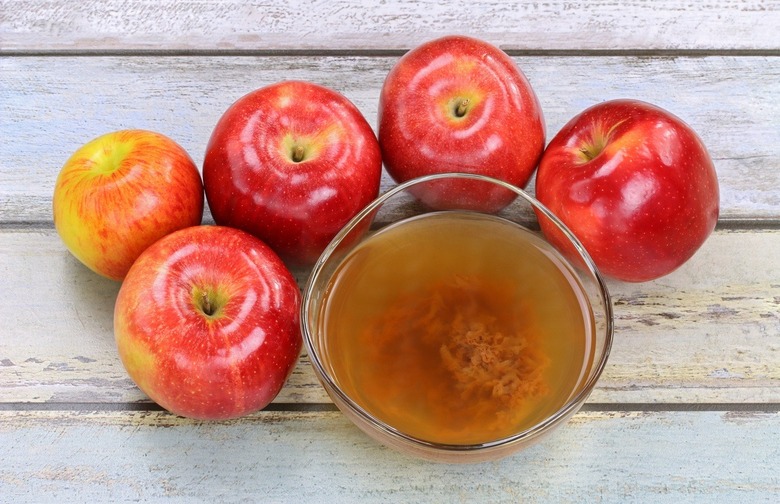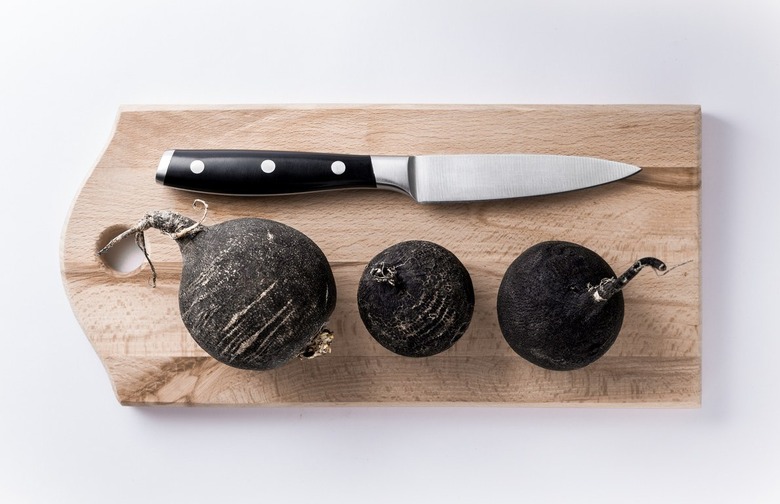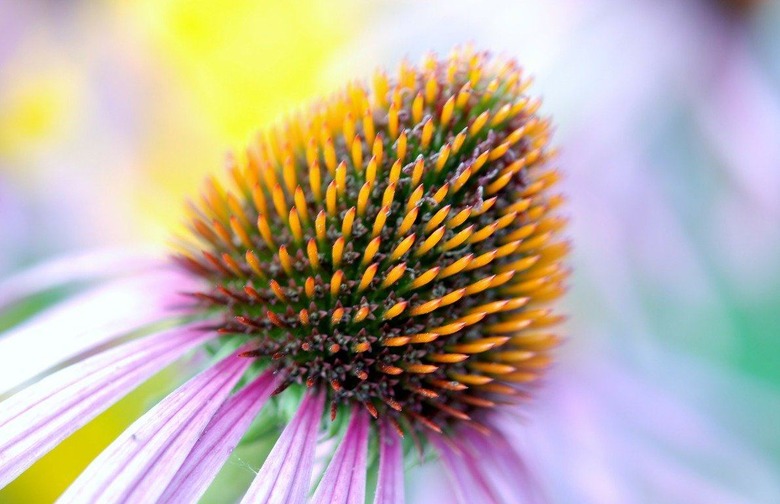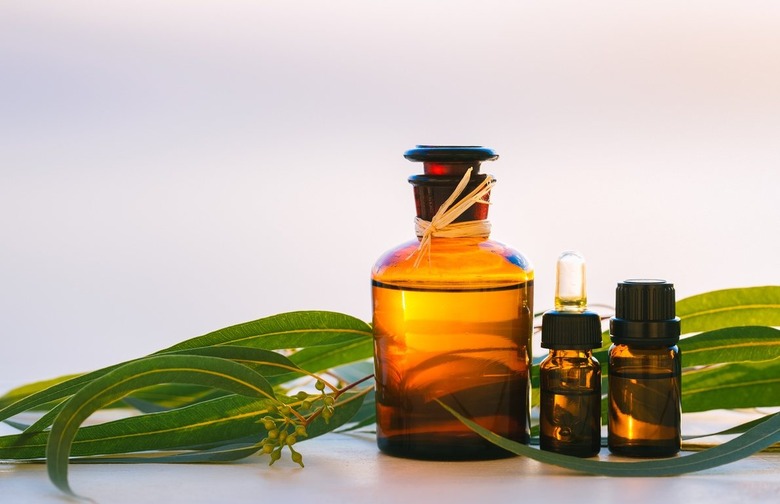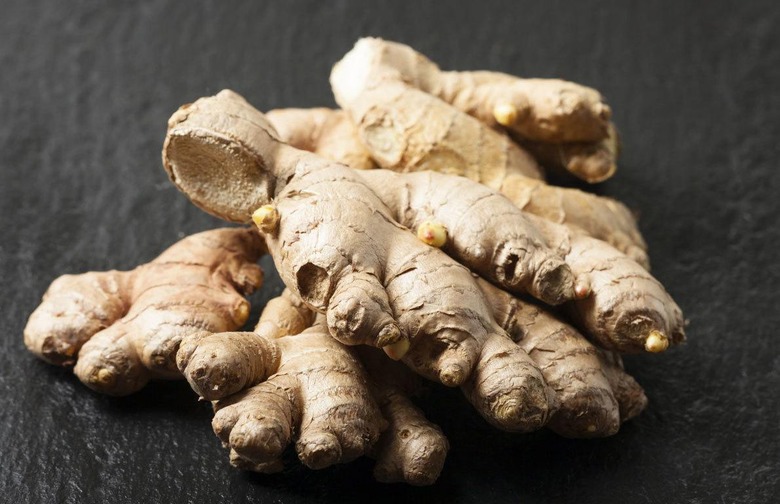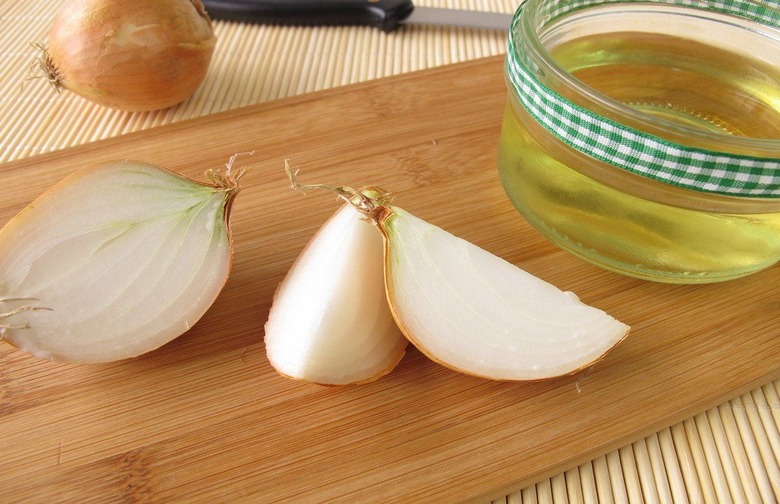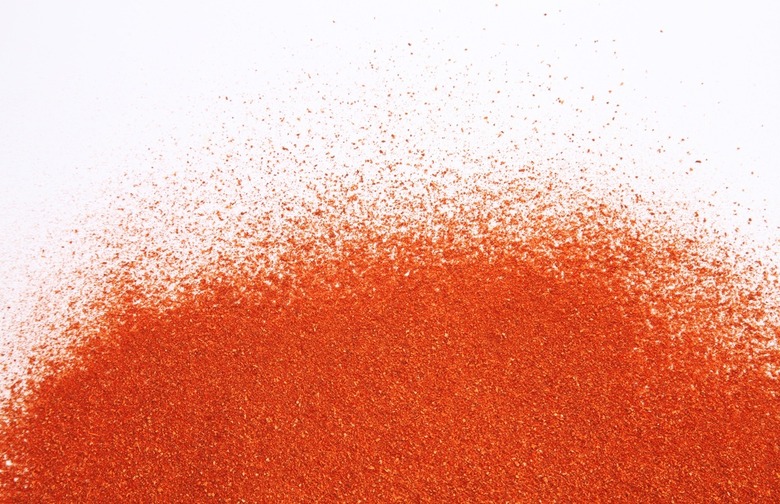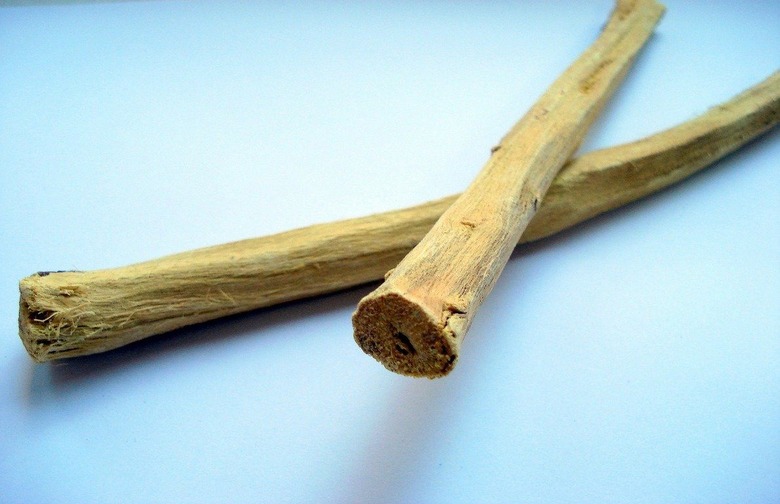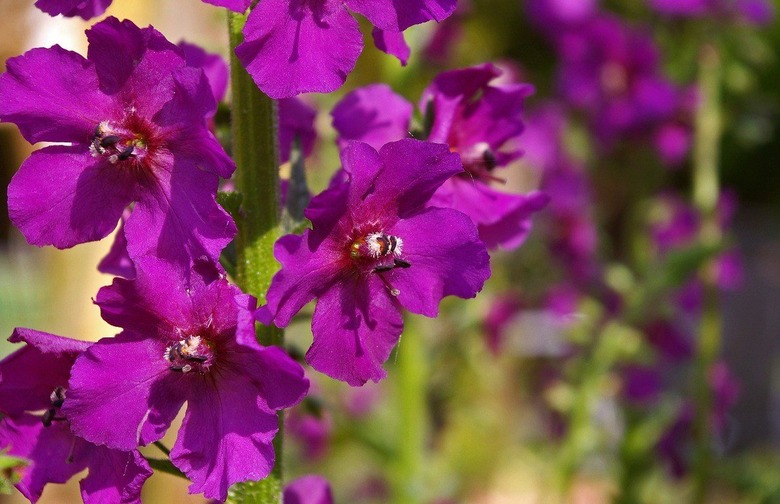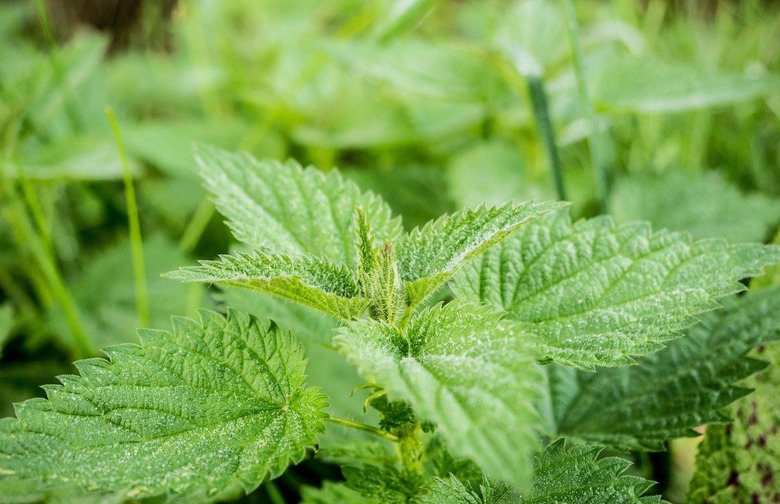10 Homeopathic Cures For Colds And The Flu: Which Ones Actually Work? Slideshow
A tablespoon of apple cider vinegar is said to strengthen teeth, aid in digestion, and regulate blood sugar, but a shot of the almost-unbearably sour cider may also prevent cold and flu. Apple cider vinegar contains properties that break up mucus in the respiratory system, and taking one or two spoonful's before the onset of a cold may be enough to prevent it.
To read about the many health benefits of apple cider vinegar, click here.
Black Radish
The charcoal–hued exterior of the turnip-sized black radish is striking in color, and the root contains almost 100 percent of the recommended daily allowance of vitamin C and 25 percent of the recommended daily allowance of potassium — both important nutrients for immune system fortification. One technique found on zesterdaily.com suggests slicing off the top and tail of the radish and digging a small hole in the flesh so that a small amount of liquid can filter through. The radish is then placed atop a shot glass and filled with honey so that a small amount of honey-infused radish juice may slowly trickle into the cup overnight. Sip the liquid the next day to relieve cold symptoms.
Echinacea
Echinacea is an herb that has been used for centuries in North America and Europe as a way to fight infections. People take echinacea in anticipation of a cold or flu, or at the first sign of symptoms. A number of laboratory and animal studies have found evidence that echinacea contains substances that enhance immune functions and ease inflammation. Echinacea may be consumed as a tea, but for a more concentrated dose, take it as an extract.
Eucalyptus Oil
A major component of eucalyptus oil has been found to have antimicrobial effects, but research suggests that eucalyptus oil is most impactful when inhaled as a vaper. To make a eucalyptus steam bath, pour a cup of boiling water into a bowl and mix in 10 drops of eucalyptus oil. Next, place a towel over your head and inhale deeply for five to ten minutes in order to experience the sinus-clearing effects.
Ginger
Ginger root adds a pungent and spicy pop to soups, stews, and stir-fried dishes, but ginger is also cited in The Encyclopedia of Medicinal Plants as a cure for nausea, a circulatory stimulant, and an antibacterial. Gingerol, a compound found in ginger, is especially useful for battling a cold because it alleviates congestion by reducing inflammation of the nasal passage. Try steeping some freshly grated ginger in hot water with some warm spices and honey. Ginger is one of the more reliable of the homeopathic cures as current research has confirmed its pathogen-inhibiting properties.
Honey Onion Syrup
If you want to avoid over-the-counter cold and cough medicines, try making your own. Onion and honey actually pair quite well together from a culinary, as well as a medicinal, standpoint. Slice thick chunks of red onion, and place alternating layers of onion and honey in a glass mason jar. Then let the mixture sit for eight to 12 hours on the counter, and use as you would a normal over-the-counter cough medicine. Onions contain the trace mineral selenium, which helps reduce inflammation and ramp up immune system functioning. Onions are also used as a homeopathic remedy for the common cold.
Kali Bichromicum
This homeopathic remedy is used to battle against sinus infections, colds, and thick nasal discharge. It's prepared from potassium bichromate, a chemical agent that supposedly targets mucus membranes, and can be purchased in pill form. Whether it works is highly debatable.
Licorice Root
Nobody likes those licorice-flavored jelly beans, but a few drops of a concentrated licorice root tincture have been found in test tube studies to inhibit the growth of the influenza virus. Licorice root can also stimulate the production of interferon, proteins that help prevents viruses from multiplying. But be careful, eating too much black licorice may induce seizures and heart problems.
Mullein
When consumed dried, the leaves and flowers of mullein are useful in treating coughs, colds, and flu, and a concentrated mullein tincture may help dredge up phlegm. The medicinal plant has increased in commercial availability the past few years, and it can easily be purchased in health food stores around the United States. More research is being done to test the effectiveness of mullein as a remedy for inflammation.
Nettle Leaves
There is still not enough evidence to determine its health benefits, but nettle leaf extract is a common folk remedy used for centuries as a way to relieve colds and fevers (it's also used as a diuretic). The leaves are rich in vitamins A, B complex, C, E, K, and they can be steeped to make a tea or consumed as concentrated extract.
